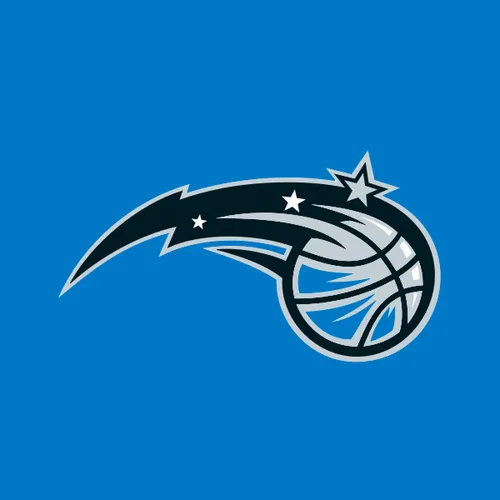







How to get a job in baseball

Introduction
The baseball industry offers a plethora of job opportunities on Rebound for those passionate about the sport, ranging from coaching and scouting to marketing and media roles. In this comprehensive guide, we will explore various aspects of the baseball job landscape, essential skills and qualifications, and provide advice for breaking into and advancing your career in the baseball industry. You will also find success stories and tips from industry professionals to inspire you on your journey.
Understanding the Baseball Job Landscape
The baseball industry is vast and diverse, encompassing multiple sectors that offer a wide range of job opportunities. Some key sectors within the baseball industry include:
Major and Minor League Baseball: Major League Baseball (MLB) and Minor League Baseball (MiLB) provide numerous job opportunities both on and off the field, such as coaching, scouting, sports medicine, management, and media roles. Additionally, front-office positions in areas like analytics, player development, and community relations are also available. You can do a deeper dive into pursuing a career in MLB here.
Collegiate Baseball: College baseball programs, particularly those competing in NCAA Division I, are a significant source of job opportunities in coaching, sports administration, athletic training, and event management.
High School and Youth Baseball: High schools and youth baseball programs across the country require coaches, athletic trainers, and support staff to ensure the success of their teams, as well as those working in youth baseball organizations and tournaments.
Baseball Media and Broadcasting: Sports journalists, commentators, analysts, and content creators cover the world of baseball across various media platforms, such as television, radio, digital outlets, and podcasts.
Baseball Marketing and Sponsorship: Professionals in this sector are responsible for securing sponsorships, managing brand partnerships, promoting baseball teams and events, and working with sports agencies.
Baseball Equipment and Apparel: Companies that manufacture and distribute baseball equipment and apparel offer job opportunities in design, production, sales, and marketing.
Essential Skills and Qualifications
The skills and qualifications required to work in the baseball industry vary depending on the specific job role. However, some common skills and qualifications that are valuable across various positions include:
Knowledge of the game: A thorough understanding of baseball rules, strategies, tactics, and history is essential for most roles within the industry. Familiarity with league structures, player development pathways, and contemporary trends is also crucial.
Communication skills: Effective communication, both verbal and written, is vital in many baseball-related positions. This is particularly important in coaching, scouting, media, and management roles, where clear and concise information sharing is paramount.
Leadership and teamwork: Many baseball jobs require the ability to lead, motivate, and collaborate with others. Coaching and management positions often involve managing diverse groups of individuals, while other roles require contributing effectively within a team environment.
Analytical skills: Roles such as scouting, sports analytics, and coaching necessitate the ability to analyze and interpret data to make informed decisions. This includes evaluating player performance, identifying trends, and understanding statistical metrics that drive success on and off the field.
Networking and relationship-building: Building strong connections within the baseball industry is invaluable in finding job opportunities and advancing your career. Networking skills, along with the ability to establish and maintain professional relationships, are key components in a successful sports career.
Adaptability and resilience: The dynamic nature of the baseball industry requires professionals to be adaptable and resilient in the face of change, whether it's adjusting to new coaching philosophies or adapting to evolving technologies and data-driven approaches.
In addition to these general skills, specific job roles may require additional qualifications or certifications. For example, coaching positions often necessitate coaching certifications, while roles in sports medicine, sports management, or analytics may require relevant degrees or certifications in their respective fields.
Breaking into the Baseball Industry
Entering the baseball industry can be a competitive process, but with persistence and the right approach, you can increase your chances of success. Here are some tips for breaking into the baseball industry:
Gain relevant experience: Internships or part-time work in baseball organizations can help you gain valuable experience to enhance your resume and cover letter, showcase your skills, and expand your network within the industry.
Build a strong portfolio: Whether you're pursuing a media, analytics, or coaching role, having a solid portfolio showcasing your work and accomplishments can help you stand out among other candidates.
Network strategically: Attend baseball events, conferences, and workshops to meet industry professionals and establish connections that may lead to job opportunities or valuable referrals.
Stay informed: Keep up to date with industry news, trends, and developments to stay informed and engaged in the baseball community.
Be persistent: It may take time and numerous applications to secure your first job in the baseball industry. Stay focused and persistent in your search, and be open to considering a variety of roles to gain experience and increase your chances of landing your dream job.
Advancing Your Career in the Baseball Industry
Once you've established yourself in the baseball industry, it's essential to focus on career advancement. Here are some tips for progressing in your baseball career:
Continuously develop your skills: Pursue professional development opportunities, such as courses, certifications, or workshops, to enhance your skillset and stay competitive in the industry.
Seek mentorship: Identify experienced professionals in your desired field who can provide guidance, advice, and support in navigating your career path.
Set clear goals: Establish specific, measurable, attainable, relevant, and time-bound (SMART) goals to guide your career trajectory and help you stay focused on your long-term objectives.
Be proactive: Seek out new challenges and opportunities within your organization or the industry to showcase your abilities, gain new experiences, and demonstrate your commitment to growth.
Network and maintain relationships: Continue to network and foster relationships with industry professionals, as they can provide valuable insights, advice, and job leads throughout your career.
Success Stories and Tips from Industry Professionals
Learning from the experiences and insights of industry professionals can provide valuable guidance and inspiration in pursuing a career in the baseball industry. Here are some success stories and tips from professionals who have built successful careers in various baseball roles:
Embrace unconventional paths: Many successful baseball professionals have taken unconventional routes into the industry, such as transitioning from other sports or industries, showcasing the importance of being open to new experiences and opportunities.
Diversify your skillset: Developing a diverse range of skills, such as coaching, scouting, and analytics, can make you a more versatile and valuable candidate, increasing your chances of career advancement.
Stay patient and persistent: Breaking into and advancing within the baseball industry can be challenging, but perseverance and determination can pay off in the long run.
Conclusion
Pursuing a career in the baseball industry can be a rewarding and exciting experience for those passionate about the sport. Understanding the job landscape, developing essential skills and qualifications, and following the advice shared in this comprehensive guide can help you break into and advance your career in the exciting world of baseball. Stay focused, persistent, and open to new experiences, and you'll be well on your way to building a successful career in the industry.



























